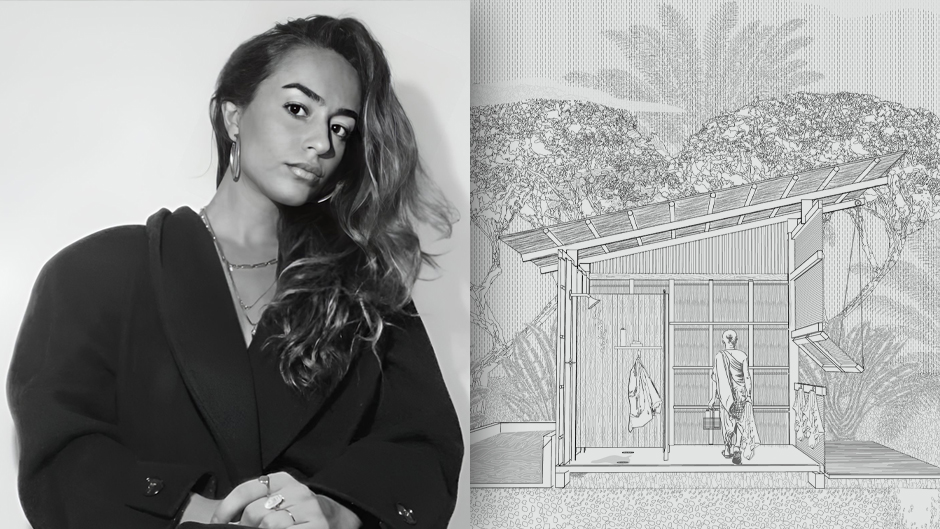A multiunit residential community set in the flatlands of Mozambique, Africa, to house women who are escaping sexual trafficking and abuse, earned the top prize of the Go Friday design contest, sponsored by the University of Miami School of Architecture and the Portugal-based design firm.
Lauren Elia, a spring 2023 graduate of the School of Architecture, earned the accolade from among 13 students in a summer studio course led by Veruska Vasconez, lecturer at the school. The students were tasked with designing emergency shelters that could be easily assembled and that did not resemble the usual tents used in refugee camps.
Go Friday collaborated with the school and provided the winner of the top project with a cash prize and a one-week trip to Portugal to visit its headquarters. Isabella Adelsohn received second place for designing a community for the Indigenous population in the Choco province of Colombia. Bennett Kyle Resnick received an honorable mention for his design of a remote shelter village in Freetown, Sierra Leone.
“It was a great surprise,” said Elia. “The other projects were very beautiful, so I was honored.”
Inspired by work she did in high school with an organization called Free the Girls, which helped women who had been victims of sexual abuse and trafficking, Elia set out to build a community that used locally sourced materials and provided opportunities for the women to enhance their dwellings so that they felt ownership over the project.
Mozambique has one of the highest incidences of sexual violence in all of Africa, according to news reports and research conducted by the United Nations and UNICEF.
Called “The Safe Haven of Mozambique,” the project is composed of several modules measuring 10 feet by 10 feet that house bedrooms and communal bath areas for the women and their children. Additional areas included a community center for group activities, a communal kitchen, and a rain garden where residents could meditate in a safe space.
The project could be as small or as large as needed, Elia noted. And modules can be easily added to accommodate more residents.
She designed each area using local hardwoods and bamboo and integrating the landscape of the region, keeping in mind the heavy rains that affect the area and its intense heat. A series of weighted pulleys opened and closed louvers to provide cross ventilation in the rooms.
A special cistern would collect rainwater. And the water would be treated, so it is safe for drinking, she said.
Elia envisioned that the modules would have panels with joinery that easily can be snapped into other prefabricated panels, as well as thatching for the roof that could be made of light fabric or palms woven by the Mozambique women.
“The thatched roofs are made out of palms,” she said. “The women could help with this work, and it would give them a sense of purpose. They could also pass on this knowledge to other women.”
Vasconez said the winning design “beautifully captured the essence of community resilience by seamlessly integrating the local culture and addressing the area’s specific needs. It stood out for its thoughtful incorporation of Indigenous elements, reflecting a deep understanding of the community's identity.”
And, she added, “the emphasis on creating a sense of community was evident in every design aspect, fostering a spirit of togetherness and mutual support.”
Elia designed the project with the goal of creating a place where abused women could feel a sense of community.
“These women have been through so much that I don’t know if they ever will feel safe,” she said. “But I think that having a place that is their own instead of living on the streets or with some random person will provide them some sort of comfort.”

